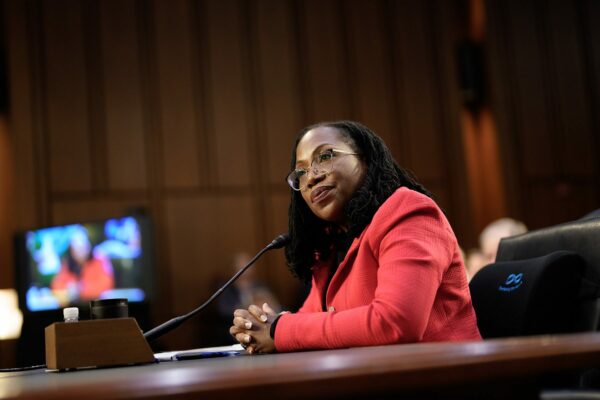'Horrible and really toxic': President of leading feminist group reveals why she quit
This story was originally reported by Candice Norwood of The 19th. Meet Candice and read more of her reporting on gender, politics and policy.
The president of the National Organization for Women (NOW) has announced that she will not seek reelection after five years leading the country's largest and oldest feminist organization. NOW’s next president will be elected during the group’s national conference in July.
Christian F. Nunes, the current leader, is the second Black woman to serve as national president since NOW’s founding in 1966. Nunes initially cited a desire to focus on her family, particularly her young son, as the reason for her departure. In an exclusive interview with The 19th, however, Nunes alleged that the “toxic” work environment at NOW was another key factor in her decision to exit.
“I think people were harder on me as a Black woman,” Nunes told The 19th this month. “When I came in, it was the middle of COVID. I came in during a period of crisis for the organization, but it was no grace. There was no empathy for the things I was handling. I was just thrown into it, and so I had to just swim or sink.”
That “period of crisis” Nunes referenced was an internal scandal first reported by The Daily Beast in 2020. At the time, nearly a dozen individuals reported “women of color being heckled, silenced, or openly disparaged at NOW meetings and offices,” according to The Daily Beast. Employees also signed onto an internal letter accusing the organization’s president at the time, Toni Van Pelt, of disparaging and sidelining women of color.
Two months after The Daily Beast report, Van Pelt resigned as NOW’s president, citing health concerns. Nunes, who was vice president at the time, then took over as the organization’s leader. Despite the circumstances leading to Nunes’ tenure as president, she said that her motivation to lead stemmed from NOW’s storied history paving the way for major legal changes addressing women’s economic and social equality. She also saw potential for her as a Black woman to strengthen the organization’s approach to intersectionality — going beyond issues that affect women as a whole and addressing more specific concerns that disproportionately affect women of color, as well as queer and trans women.
Nunes stated that while she believes a majority of NOW’s members remain invested in this inclusive vision, “there's a core, small group that are just really horrible and really toxic.”
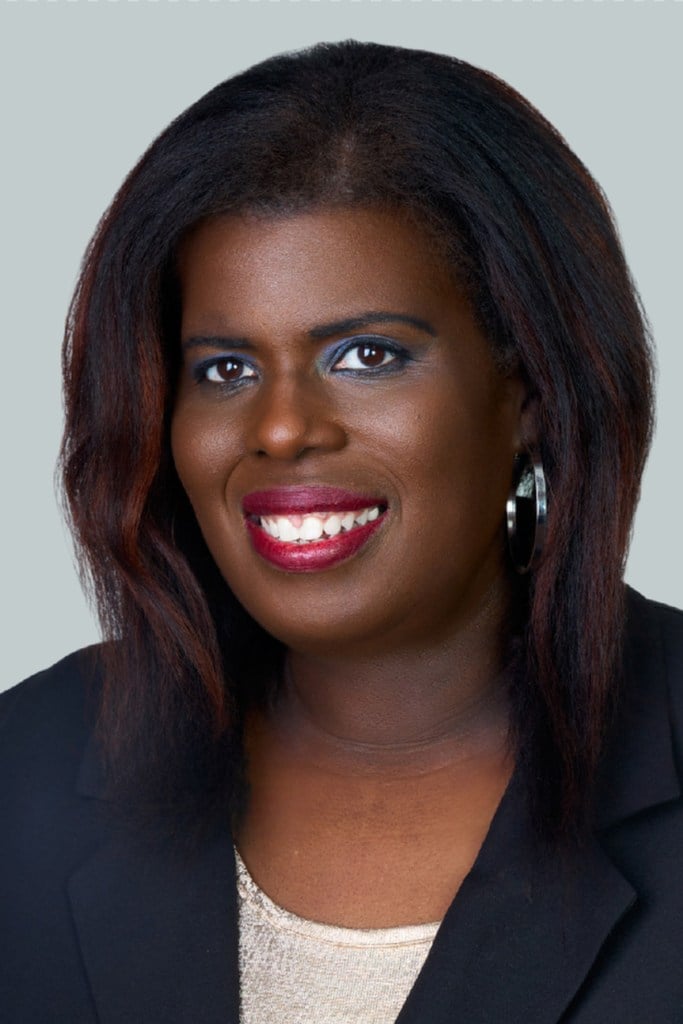 After five years leading the National Organization for Women (NOW), Christian F. Nunes has announced that she will not seek reelection as president of the organization.
After five years leading the National Organization for Women (NOW), Christian F. Nunes has announced that she will not seek reelection as president of the organization.
(Courtesy Christian F. Nunes)
Her complaints about the organization focused on her needs as the mother of a young child with autism, and alleged disrespectful treatment from a few individuals on NOW’s 18-member national board.
The 19th reached out to NOW for a response to Nunes’ statements. A press person for the organization said they are unable to comment “because the person who would respond is Christian.” Nunes, she said, holds the top position for the main organization as well as NOW’s charitable foundation and its political action committee.
Nunes first became NOW’s vice president in May 2019 after the organization’s board abruptly removed Gilda Yazzie, an Indigenous woman and member of the Navajo Nation, from the position. Yazzie later filed a lawsuit against NOW alleging discrimination and harassment.
Nunes said she had just given birth to her son, and Van Pelt approached her about the vice presidency with a promise that Nunes would have 12 weeks of maternity leave and could work remotely for the rest of the year before moving from her home in Arizona to NOW’s headquarters in Washington, D.C., in January 2020.
After her appointment to the vice presidency, however, the tone shifted, Nunes said. NOW’s leadership allegedly told her she needed to work for six months before taking maternity leave. She began traveling for work six weeks after giving birth. She said board members also pressured her to move to D.C. sooner — she relocated in September 2019. After Van Pelt resigned in 2020 and Nunes took over, she said that she continued to face pressures that conflicted with her ability as a single mother to care for her son.
“There was a lot of people calling 9:30, 10:00 at night and expecting that I should be available,” Nunes said. “I have had a lot of comments about my decisions to set boundaries with my weekend, when we don't have board meetings. I've had comments like, ‘You're on from now 24/7,’ and I've had difficulty accepting that. I have a right to have a life. I have a right to help my family.”
Additionally, Nunes said she repeatedly faced heated questions from some board members about her decision-making and pressure to quickly resolve long-standing issues at the organization that she inherited as president. This questioning extended to Nunes’ efforts to improve NOW’s financial management processes, she said. Nunes, who has a master of business administration degree, said she brought in a third-party financial controller to provide “checks and balances” to the financial management and to address needs like the group’s account reconciliation. As a result, Nunes said she saw constant “attacking” of her credibility and leadership.
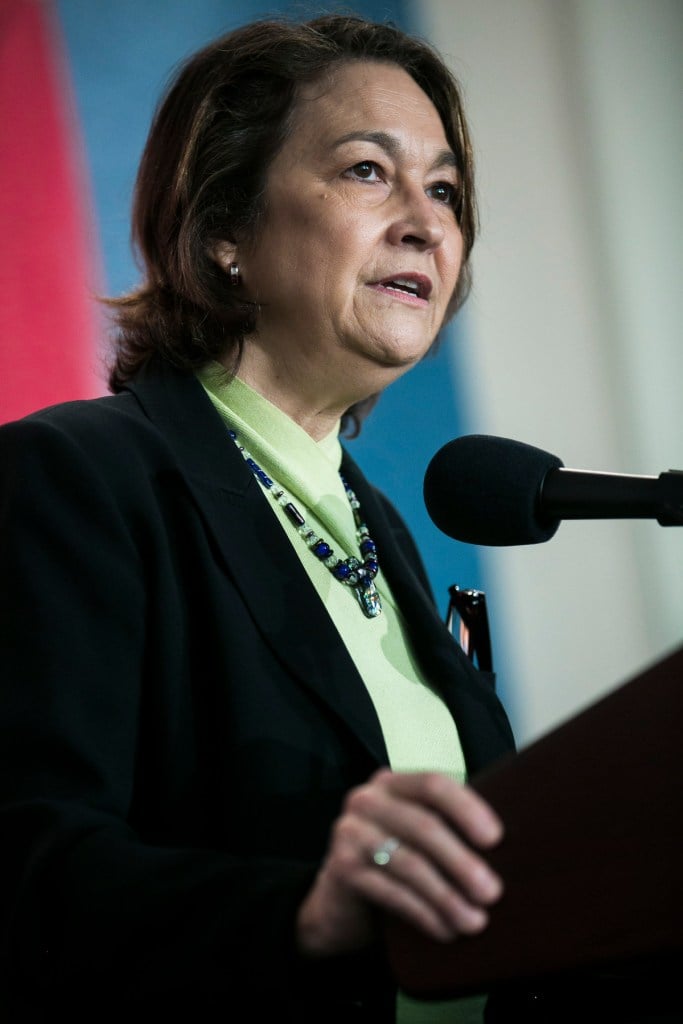 Terry O’Neill, former president of the National Organization for Women, served on Nunes’ presidential advisory committee, where she says she witnessed some of the toxic behavior Nunes’ has described.
Terry O’Neill, former president of the National Organization for Women, served on Nunes’ presidential advisory committee, where she says she witnessed some of the toxic behavior Nunes’ has described.
(T.J. Kirkpatrick/Getty Images)
Terry O’Neill, who served as president of NOW from 2009 to 2017, told The 19th that she witnessed some of this behavior firsthand. O’Neill and Nunes first connected after Nunes became president. Nunes asked O’Neill to join her presidential advisory committee, which gave her access to communications and meetings between Nunes and NOW’s board.
O’Neill noted that she was personally impressed with how Nunes handled the finances.
“After about four quarters, we started getting financial reports that had graphs and charts, and were so clear and easy to understand, and you could just breeze through the financial reports,” O’Neill said. “I was like, ‘Wow, this woman is for real.’”
But on multiple occasions, O’Neill said she had to “pop off” and call board members out for what she viewed as “flat out racism” against Nunes.
“I never experienced the level of hostility and sustained hostility that Christian experienced,” O’Neill said. “You want people to criticize you. … You need that as president, because it makes you better. But if you are gratuitously attacked, all it does is raise your cortisol levels. It's very bad for your health. It pushes your blood pressure up.”
John Erickson, another member of the presidential advisory committee and a former national board member, also characterized the treatment he witnessed by some board members as “outward racism” against Nunes. He spoke with The 19th about a recent board meeting held remotely during which he says members “berated” Nunes for about 20 minutes for not turning on her video camera for the meeting. Nunes attempted to explain that she was engaged in the conversation, but consoling her sick son who happened to be in her lap at the time, Erickson said.
“They continued to almost make her feel bad for being a mother and woman in leadership,” Erickson said. “That's just antithetical to, I think, NOW’s founding principles and what we should be doing and supporting.”
Nunes’ experience highlights a longstanding question concerning NOW’s ability to adapt in an era where liberal and progressive women skew younger and more racially diverse than the White baby boomers who make up the majority of NOW’s leadership.
NOW was founded in 1966, against the backdrop of the Civil Rights Movement and the budding second-wave feminist movement focused on pushing for reproductive rights, workplace equity, protections against gender-based violence, and challenging rigid thinking around gender roles and women’s sexuality.
Black women played a role in NOW’s leadership from the beginning. Cofounder Pauli Murray was a Yale Law graduate and member of President John F. Kennedy’s commission on the status of women who challenged racial and gender discrimination in her legal writings and activism.
In 1970, Aileen Hernandez became NOW’s second national president and the first Black woman to lead the organization. Before the term intersectionality was coined by scholar Kimberlé Crenshaw in 1989, Hernandez was one of many Black women leaders drawing nuanced connections between race and gender, said Katherine Turk, a historian and author of the 2023 book, “The Women of NOW: How Feminists Built an Organization that Transformed America.”
During the height of protests against the Vietnam War, Hernandez noted that working-class men and Black men represented an outsized number of military members in combat. She spoke about access to welfare and the effects of police brutality on Black families. The response from White middle-class leaders of NOW? “That’s not a women’s issue,” Turk said.
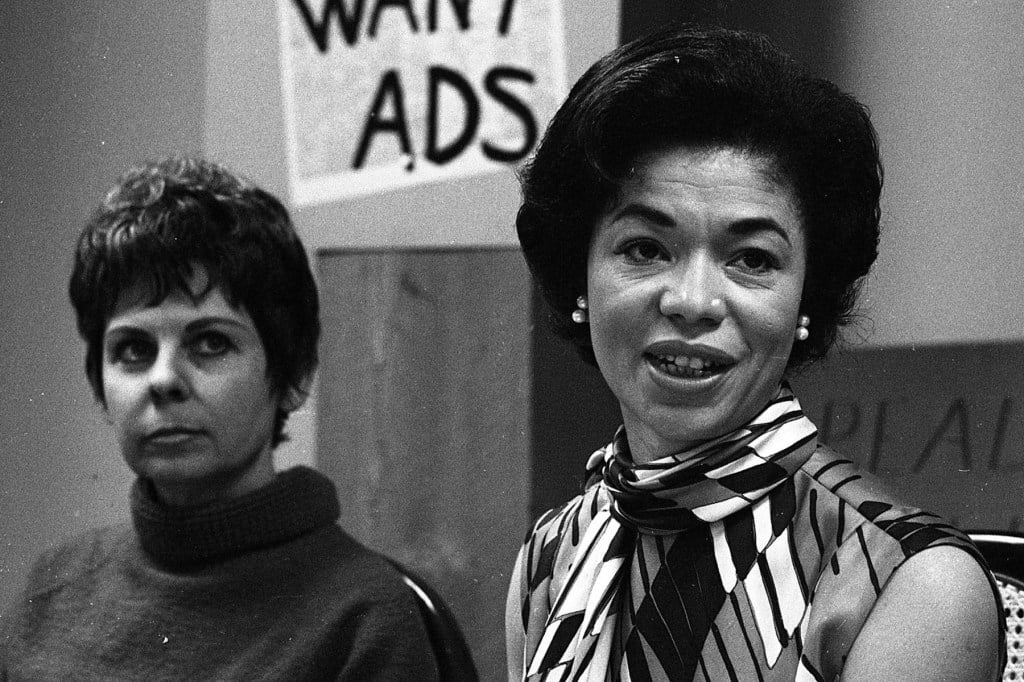 Aileen Hernandez (right) became the first Black president of the National Organization for Women (NOW) in 1970.
Aileen Hernandez (right) became the first Black president of the National Organization for Women (NOW) in 1970.
(Joe Rosenthal/San Francisco Chronicle/Getty Images)
At the same time, NOW leaders put their full weight behind pushing for the ratification of the Equal Rights Amendment, which would add specific gender protections to the U.S. Constitution. Then and now, some women of color within the organization felt the measure did not go far enough to address their immediate needs. Race was a problem for NOW from the beginning, Turk added, but many women of color saw enough potential in the organization’s structure and mission to work through those challenges.
NOW helped to change the law and culture surrounding conversations about women’s rights and it took off in the 1960s and ’70s. The group served as a “big tent” for women all over the country to harness power through collective action on a range of issues they cared about, Turk said.
“NOW was not about sitting around and theorizing. It was all about taking action and organizing,” Turk said. “You could form a chapter anywhere, you just find nine other people. It's this flexible tool that's strong enough to be lobbying before Congress and influencing the national policy debate, but it's locally rooted.”
But the tension between women of color and White women within the organization persisted — and continued to deepen into the 1990s and 2000s as the subject of intersectionality gained more popularity. Even well into the 2000s, intersectionality was a word that confused and even angered many of NOW’s White members, O’Neill said.
O’Neill recounted that during her time as president in 2013 or 2014 she pushed to change NOW’s statement of purpose to include a focus on “intersectional activism.” The subject ignited fierce debate during a national conference, she said.
“There's women at the microphone yelling at me, ‘Take that word out of there. Nobody knows what it means. We will look stupid,’” O’Neill said.
This exchange captured a growing generational divide that continues to plague NOW, O’Neill said: White women baby boomers raised on the flawed promises of a color-blind society are angered by critiques that force them to examine their own roles in a White supremacist patriarchy.
“They see their own oppression very, very, very clearly, and it's very hard for them to see the oppression of women of color in any other terms than the terms of their own oppression,” she said. O’Neill, a White woman, admitted that she also made mistakes and faced criticism from women of color during her time in NOW leadership, and had to evolve the way she considers the intersections of different marginalized backgrounds.
Erickson said NOW’s leadership remains stuck in the past, which he believes is contributing to declines in membership and could threaten the organization’s sustainability.
In a 2020 interview with The Daily Beast, Yazzie stated that NOW wanted her as a “token” rather than as a “full, functioning vice president.” Nunes did not use the word token in her own description, but said she and Yazzie shared similar experiences.
Externally, Nunes said she received overwhelmingly positive feedback from NOW members and other outside observers. During her time as president Nunes led initiatives like NOW’s Unlock the Future campaign, which demands humane treatment for detained immigrant families, particularly women and girls fleeing sexual violence, assault, and poverty. She also spearheaded racial equity training across the organization, including NOW’s grassroots chapters.
The board did not push back on these initiatives, “because it makes the organization look good,” Nunes said, but the broader pushback she faced made it difficult to do her job. The internal strife at NOW reflects a larger flashpoint in liberal political leadership during President Donald Trump’s second term. Democratic leaders appear to be torn between pressure from moderate and progressive voters who all want the party to fight harder for their needs.
In the weeks after the 2024 election, liberal advocacy groups told The 19th that today’s political moment calls for more strategic action rooted in grassroots organizing. Women of color organizers say that more work needs to be done nationally and locally to center their perspectives. National organizations like NOW, the Feminist Majority Foundation and the American Association of University Women have grappled in recent years with accusations of racism and claims that toxic White feminism runs rampant.
O’Neill said she questions whether NOW with its current structure and leadership is capable of meeting those demands for change.
Nunes said she sees some promise in local NOW chapters, but a bigger shift needs to happen in national and state leadership.
“I think some chapters are effective with leading from an anti-racist and intersectional approach,” Nunes said. “However, the alienation many women of color experience and reported experiencing makes it very challenging for NOW to move forward authentically and intentionally.”



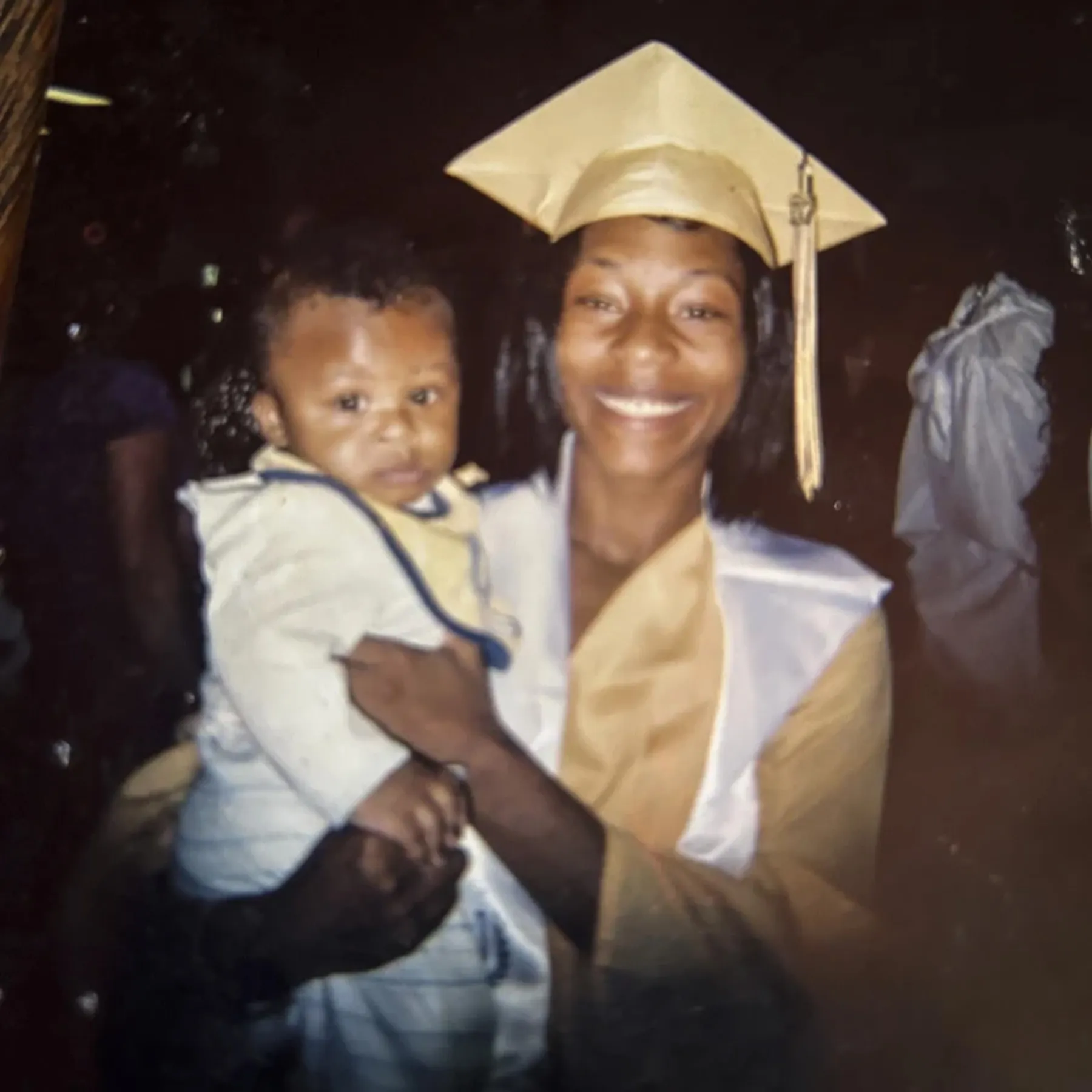 Sonya Massey holds an unidentified boy. (Ben Crump Law)
Sonya Massey holds an unidentified boy. (Ben Crump Law)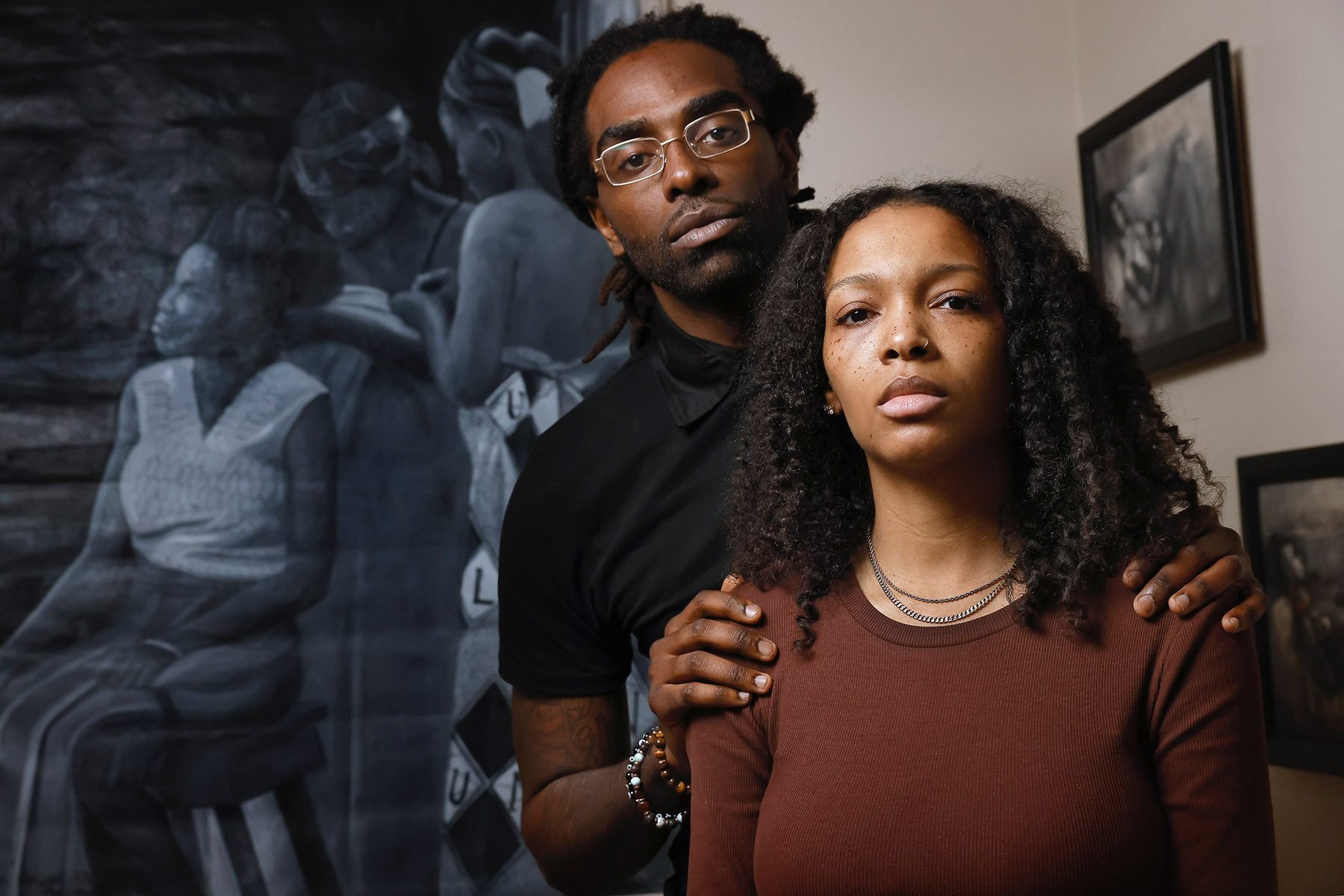 Temecia and Rodney pose for a portrait in DeSoto, Texas on March 28, 2023. (Tom Fox/The Dallas Morning News)
Temecia and Rodney pose for a portrait in DeSoto, Texas on March 28, 2023. (Tom Fox/The Dallas Morning News)